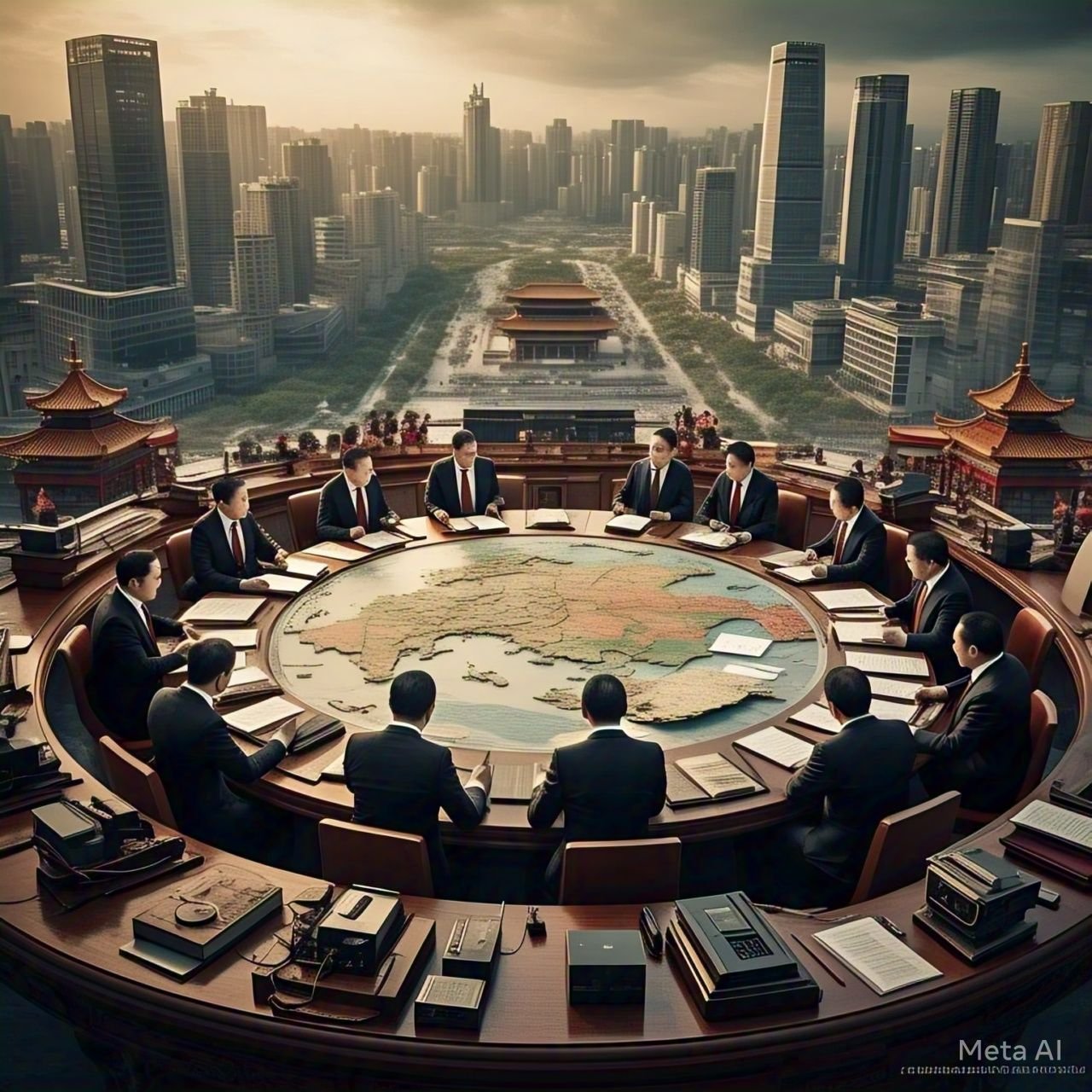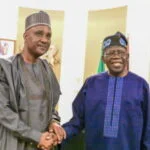In the late 1980s, as the world embraced the winds of globalisation, China quietly orchestrated its long-term strategy to embed itself within the global economic order. At a time when Western capital was grappling with the environmental consequences of pollution and outsourcing, Beijing sponsored Western academics and scholars to promote the narrative that globalisation was a boon for the West. However, China played the role of reluctant participant, pretending to resist it so that the West wouldn’t realise that Beijing was strategically propping up globalisation and free trade for its own benefit.
China began exporting to America in droves, ensuring that it loaned back its trade surpluses to the US, keeping American consumers reliant on cheap, “Made in China” goods. During the Cold War, China initially benefitted from its ties to the Soviet Union but later pivoted to align with the US in a move designed to secure access to Western investments and consumer markets. With its eventual orchestrating of BRICS, China knew it could not fight America alone. It carefully nurtured alliances with Russia, ensuring its energy security while playing both Moscow and Washington against each other for its strategic advantage.
Throughout history, the most decisive victories have not been won on battlefields but in the shadows – through infiltration, deception, and long-term strategic maneuvering. The most powerful nations understand that war is not merely about weapons and soldiers but about control of information, economies, and political systems. Those who wait for conflict to begin before gathering intelligence or shaping the battlefield often find themselves fighting a war they have already lost.
Sun Tzu captured this truth in The Art of War: “Supreme excellence consists in breaking the enemy’s resistance without fighting.” The greatest victories come not from brute force but from manipulating events so precisely that the enemy’s downfall seems inevitable, even self-inflicted.
For nearly four millennia, China has perfected this philosophy. Unlike the West, which favours open confrontation, China plays a long, silent game. It embeds itself within enemy institutions, cultivating influence decades before hostilities arise. Today, this strategy is evident in China’s systematic penetration of Western political and economic systems, where operatives, proxies, and sympathiser shape policies, manipulate markets, and erode adversarial strength from within.
While Washington reacts impulsively to global events, Beijing orchestrates them. Every US action has already been anticipated in Chinese war rooms, with counter-measures prepared well in advance. Economic entanglement, technological dependence, and political subversion are not accidental byproducts of globalisation but deliberate weapons, wielded with surgical precision. Through these tactics, China ensures that key Western institutions remain compromised, allowing Beijing to set the terms of engagement without ever resorting to direct confrontation.
This method of silent conquest is not new. Before marching into Persia, Alexander the Great dispatched spies, studied Persian customs, and bribed key officials to ensure minimal resistance when his army arrived. Napoleon Bonaparte, too, relied heavily on infiltration, using spies to track enemy movements and disrupt alliances before battles even began.
The Vietnam War offers another lesson. Long before American troops arrived, the North Vietnamese and the Viet Cong had already embedded themselves within South Vietnam’s government, military, and even inside US bases. They understood their enemy’s weaknesses, while the US, lacking deep intelligence, was forced to fight an opponent it neither knew nor could control. The result was a war where America’s superior firepower was rendered ineffective by the enemy’s superior strategy.
Today, warfare has shifted beyond traditional battlefields. The most powerful nations no longer rely solely on military dominance but instead shape global realities through economic leverage, technological control, and strategic deception. China’s Belt and Road Initiative, its grip on global supply chains, and its growing influence over Western media, academia, and policy-making reflect a masterfully executed long-term strategy of infiltration.
Trump, recognising the vulnerabilities of an over-exposed America, understands that the country is precariously positioned in an increasingly inter-connected world. Should a run on the dollar occur, it would force America into an unprecedented situation: it would have to rely on the very nations it once dominated for essential goods—goods that should, in a self-sustaining economy, be produced in-house. This realisation has led Trump to push for a resurgence of American manufacturing. By bringing back the lost manufacturing capabilities, America can curtail the potential dangers of sudden global disruptions that would leave its domestic consumer market starved for goods. This strategic move ensures that the US doesn’t find itself helpless in the face of economic or geopolitical upheaval.
In this light, Trump’s approach mirrors the strategy of Pharaoh in biblical times. Just as Pharaoh relied on Joseph’s foresight to navigate Egypt’s impending famine, Trump has turned to figures like Elon Musk -visionaries capable of driving technological innovation and re-invigorating American industry – to help secure the nation’s future. These leaders are seen as essential not just for economic prosperity, but for preserving America’s global standing in an uncertain future. The efforts to rejuvenate manufacturing and technological prowess are, therefore, not mere political initiatives but existential strategies to safeguard America’s independence and resilience in the face of inevitable shifts on the global stage.
Action speaks louder than words, but in the realm of silent conquest, inaction—or miscalculated action—can be far more dangerous. The real battlefield lies in the unseen corridors of power, where intelligence is gathered, alliances are shaped, and adversaries are dismantled without realising it. And in this struggle, the pen—wielding knowledge, deception, and strategy—remains mightier than the sword.
Dr Basil Odilim Enwegbara is University of London, and Massachusetts Institute of Technology-trained Development Economist, Fellow, Society of Project Management & Development Professionals International.



























